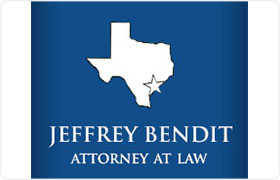Cedar Lane Adoption Lawyer, Texas
Sponsored Law Firm
-
 x
x

Click For More Info:
-
Jeffrey Bendit P.C.
434 N. Brooks St. Hwy 36. Brazoria, TX 77422» view mapDivorce & Family Law The Lawyer West of the Brazos
When you need someone to fight for you, we can thoughtfully evaluate your experiences and honestly direct you to the most appropriate course of legal action.
800-833-4190
Robert D. Clements
✓ VERIFIEDDivorce & Family Law, Estate, Adoption, Divorce, Child Support
Robert D. Clements, Jr. is a firm courtroom presence—aggressive when necessary but always aware that people’s lives are in the balance. His goal i... (more)
Brooks Lee Bass
Alimony & Spousal Support, Adoption, Criminal, Animal Bite
Status: In Good Standing Licensed: 28 Years
 Jeffrey Bendit Brazoria, TX
Jeffrey Bendit Brazoria, TX AboutJeffrey Bendit P.C.
AboutJeffrey Bendit P.C. Practice AreasExpertise
Practice AreasExpertise

